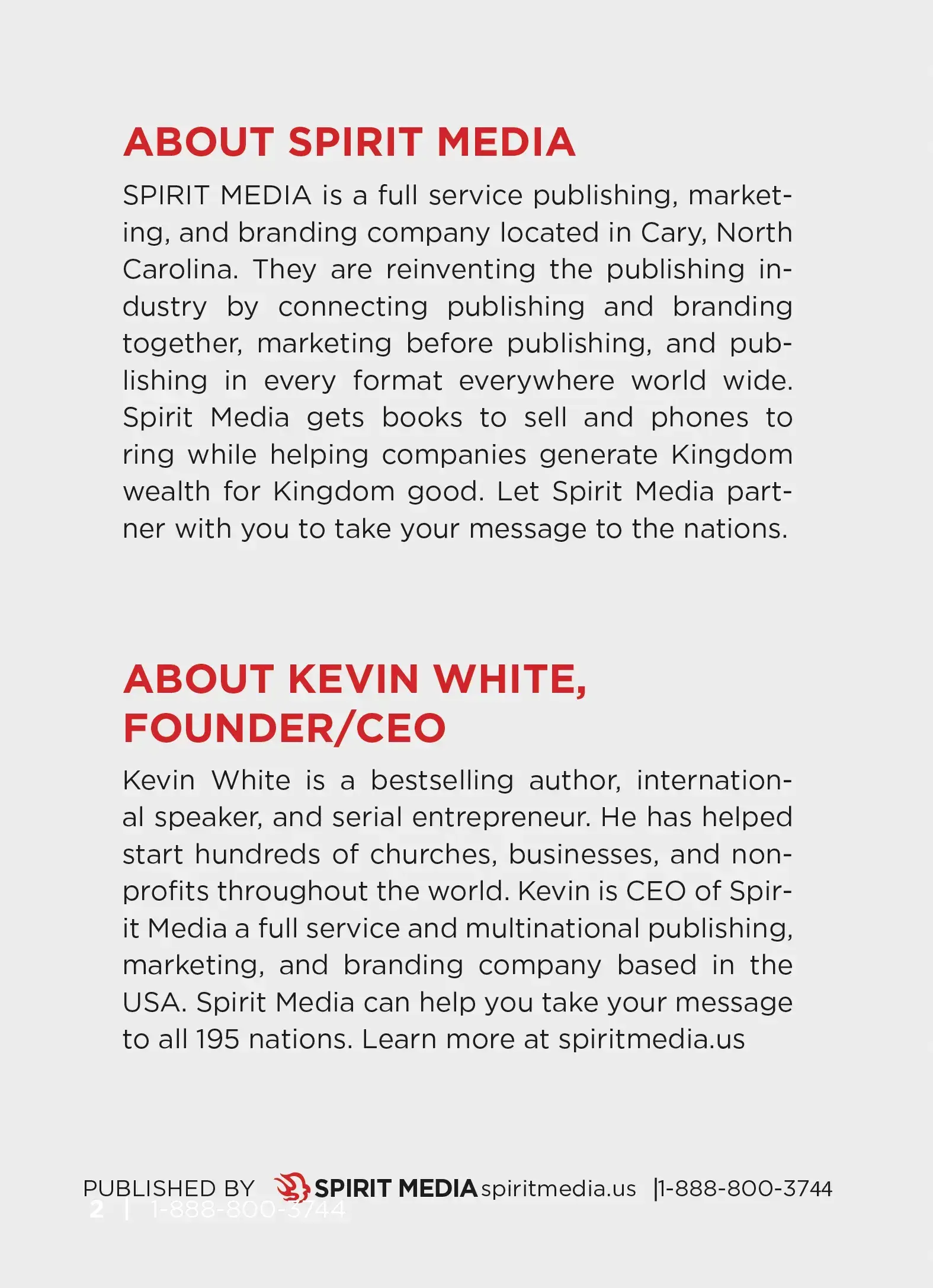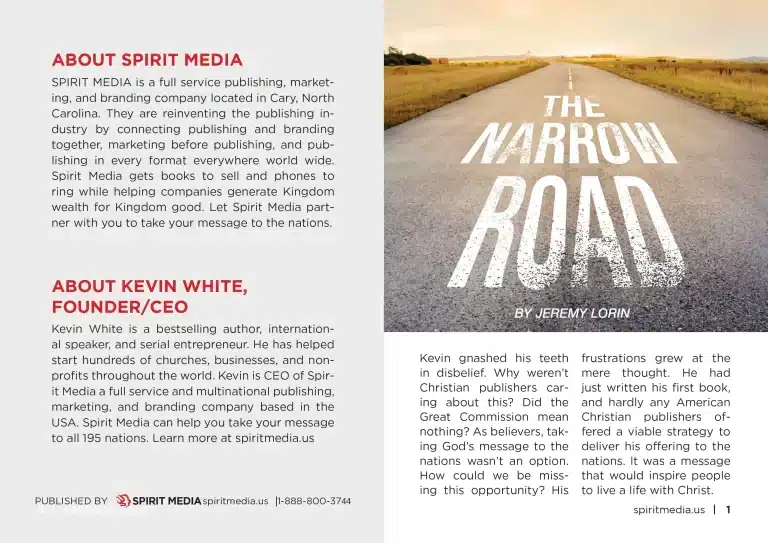So you’ve written a book, and now you want to get it published. Congratulations! That’s a huge accomplishment—and one that will hopefully lead to many more books down the line. But before your manuscript becomes a real-life book on store shelves, it needs to make its way through a Christian publishing company first. And when it comes to pitching your work, there are definitely some tricks of the trade that can help your chances of success with Christian book publishers—or at least save you time in the long run. So here are some tips for pitching your manuscript to Christian book publishers:
Know your target Christian book publishers.
You can’t expect to get a book deal if you don’t know who to pitch your manuscript to. At this stage, it’s important to know what Christian book publishers publish and who their editors are, as well as what their submission guidelines are and how long they take on average to respond (or if they even do). A lot of Christian book publishers have different terms for authors depending on the nature of their books–some may require that you sign over all rights or give them exclusive publication rights; others might not care as much about that sort of thing. It’s also helpful to know whether or not there is any compensation involved with publishing through a particular house–some Christian book publishers don’t pay advances at all!
Be sure you know what you want–and are ready for–in a Christian publishing Company.
Before you start the process, it’s important to know what you want from a Christian publishing company. Some Christian book publishers have different focuses and goals than others. For example, some Christian book publishers may be more focused on helping authors self-publish their books, while others are more interested in getting their authors’ manuscripts into mainstream bookstores (and possibly even into libraries).
Another question to ask yourself is: “What do I want my manuscript published as?” You may want an eBook version of your book or one that’s available in print form only–or maybe both! This can be a tricky question because some Christian book publishers only offer certain types of publishing packages while others offer many different options. It’s important to look closely at each Christian publishing company’s website before deciding which one suits your needs best.
Know the genre your book falls into, as well as the themes it deals with.
If you’re writing for Christian book publishers, it’s important to know the genre your book falls into and what themes it deals with. For example, if your book is about child abuse, then the Christian publishing company will want to know that it doesn’t include any graphic content or language that might be offensive to readers.
That said, there are some genres that tend to have more restrictions than others–so if you’re writing in one of these categories (for example: romance), make sure you do some research into what kind of guidelines Christian book publishers may have for submissions.
Make sure your writing is clean and easy to read.
When you’re pitching your manuscript to a Christian publishing company, it’s important to make sure that the writing is clean and easy to read. Don’t use big words where small ones will do. Don’t use flowery language when simple words will work just fine.
Don’t use slang or colloquialisms unless your audience is familiar with them–and even then, don’t assume that everyone knows what you’re talking about! You might want to avoid contractions like “can’t” or “won’t,” because they can make your writing sound informal (and potentially unprofessional).
Make sure you have a good idea of what other books on the market like yours look like.
Take a look at the cover art and content, especially if your book is similar to one that’s already been published.
This will help you to determine what your book should look like. If you’re writing a children’s book for Christian publishing company, for example, then it probably shouldn’t have a lot of big words or complex sentences! Be sure that your writing is easy for readers to understand and doesn’t include any confusing jargon or technical terms
A complimentary letter should be included with your submission package.
You should also include a complimentary letter with your submission package. This is an opportunity to introduce yourself and your manuscript to your chosen Christian publishing company, as well as provide some basic information about it. Here are some tips for writing a good introductory letter to Christian book publishers:
Keep it short and sweet! Your introduction should be no longer than one page in length, so don’t waste time with unnecessary details or fluff words like “I would like” or “I am excited.”
Focus on getting right down to business by introducing yourself and briefly describing what type of book you have written (i.e., fiction or nonfiction), then giving readers some idea of what they can expect from reading it–what genre(s) does it fall into? If applicable, include any specific categories that might interest them (such as Christian living).
If there are other reasons why readers might want this book besides just because they’re looking for something new by someone new (e.,g., because everyone else has read everything else out there already), mention those too!
Create an effective query letter.
As you’re preparing to send out your manuscript to a Christian publishing company, it’s important to remember that Christian book publishers are looking for quality work. You should not only be proud of what you’ve written but also confident that it meets the standards of the Christian publishing company with whom you’re submitting.
To help get your foot in the door at a Christian publishing company, here are some tips on writing an effective query letter:
Be sure to include information about yourself and why this particular book is dear to your heart. This can include personal details from life experiences or anecdotes from friends/family members who’ve been touched by something similar in their own lives (i.e., “My uncle suffered from depression after losing his job,” or “The story reminds me so much of my friend’s struggle with cancer”). This part helps establish credibility as well as demonstrate passion for this topic area–something every Christian publishing company looks for when considering new projects!
The next part is the “meat” of the query letter. It’s where you tell the story of how this topic came to be your passion, and why it’s important for others to hear about. This can include personal experiences that helped shape your perspective on a particular issue (i.e., “After growing up in an abusive household, I became interested in writing about domestic violence”), or simply explain what sparked your interest in this topic area (“My parents’ divorce when I was a child caused me to question how families stay together”).
The third section of the query letter is where you summarize your book proposal and pitch, including how it will benefit readers and what makes it unique from other books on the market. You should include a brief description of each chapter, as well as an outline or breakdown of how the book will be structured.
It’s important to keep the query letter short and sweet (no more than one page). If possible, include a brief synopsis of your book as well as a writing sample. This is where you’ll want to show off your writing skills by writing an engaging paragraph or two that offers readers a glimpse into what they can expect if they decide to read further.
Write the best possible book that you can.
Make sure it’s the best book you can write, then write it. Don’t worry about how to market your book, or whether anyone will buy it. Just write a good one. When you have, start sending queries and submissions out all at once—this will give you an idea of where your book fits in the market and what kind of response it deserves.
You can use these tips to help get your manuscript published by Christian book Publishers.
As with any kind of writing, the most important thing is to know your target audience. This is especially true when it comes to publishing a Christian book. You must know what kind of Christian publishing company you want and what they publish, so that you can better market yourself to them–and vice versa.
One way for writers who have never published before (or at least not under their own name) is by attending conferences where authors gather together and talk about their experiences in the industry, whether good or bad. These conferences also provide excellent opportunities for networking: meeting potential Christian book publishers face-to-face and getting feedback from other authors who have already gone through this process themselves!
Spirit Media: The Christian Publishing Company Trusted By Many
Taking the bold step to send your manuscript to Christian book publishers can be daunting. You’re trusting someone else with your words, your vision, and your faith. This is why it’s crucial to partner with a Christian publishing company that understands the significance of this decision and values your work.
When you choose Spirit Media as your Christian publishing company, you’re not only opting for a remarkable publishing experience—you’re joining a community of storytellers sharing a common purpose in spreading faith and love. Allow us to be your guiding compass as we navigate the world of Christian book publishing together, transforming your manuscript into a beacon of inspiration and hope.




